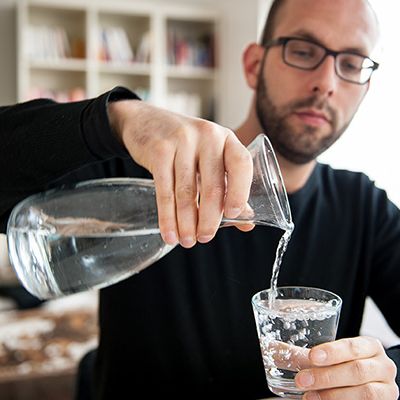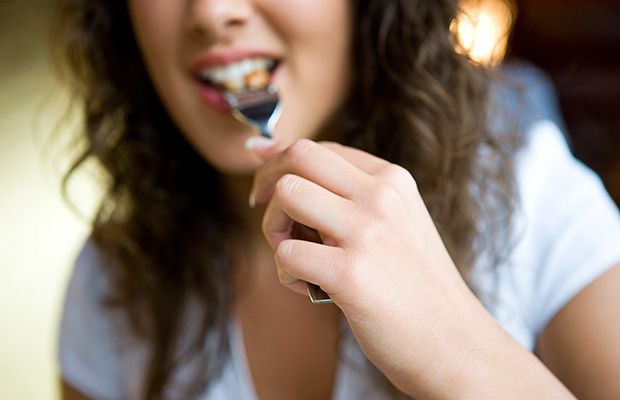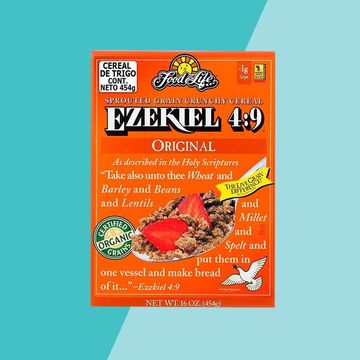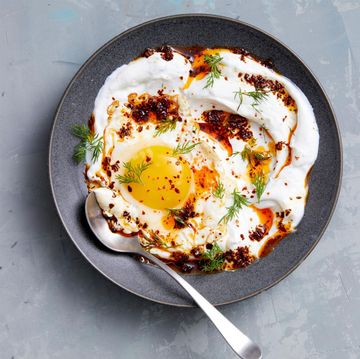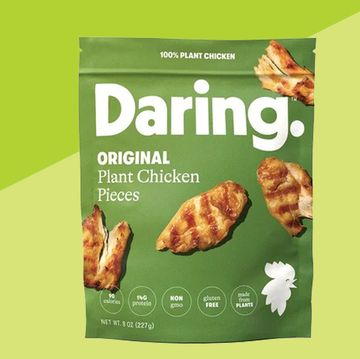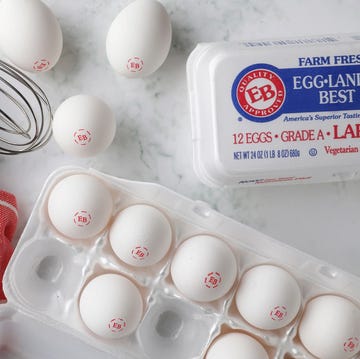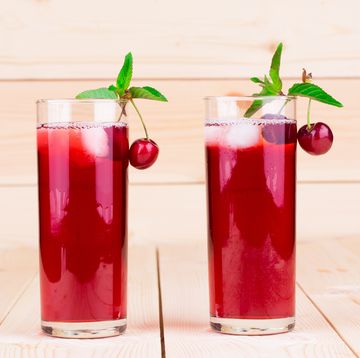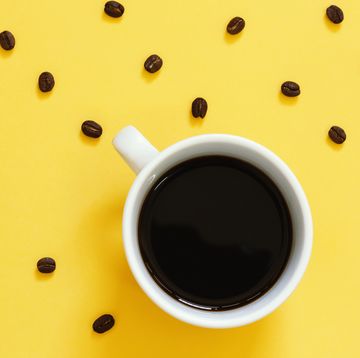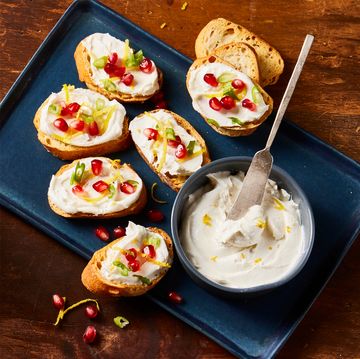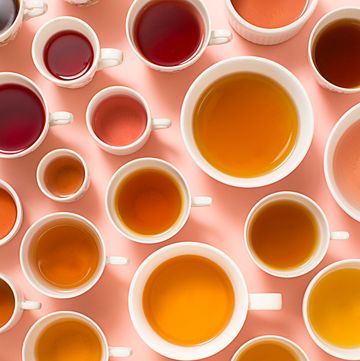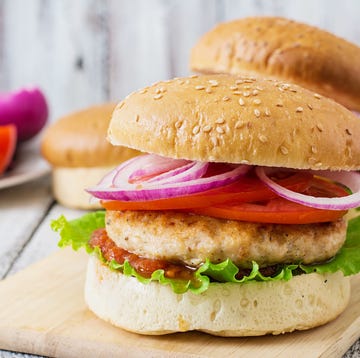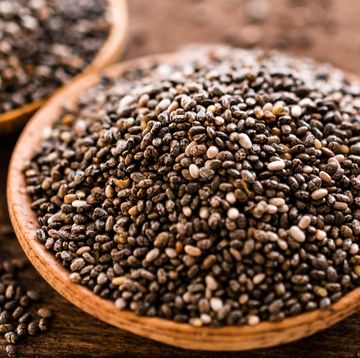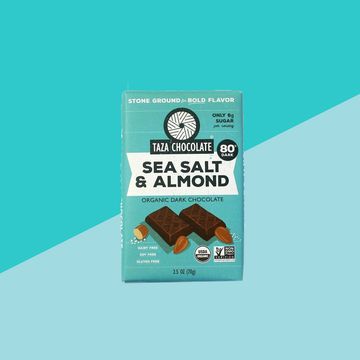Diet experts have prattled on for years that downing a big glass of water right before or during a meal can help you eat less and thereby lose weight. Makes sense, too: Drinking more would seem to make you more full—and less likely to gorge on second helpings of dinner. But as it turns out, putting this advice into practice may have unintended consequences on your ability to optimally digest foods and absorb their nutrients, which isn't exactly a great trade off, is it?
I first stumbled on the idea of not drinking water with meals in the new digestion health book Go With Your Gut. Author Robyn Youkilis recommends not drinking a half hour before meals and up to an hour after meals. If you absolutely must, she says, take small sips only to wash down food—otherwise, you risk diluting your stomach's reservoir of hydrochloric acid, which is essential to break down food properly. The idea sounded a little crazy to me at first, but as someone who sucks down two 16-oz glasses of water with dinner every night—and experiences my fair share of bloating—I decided to ask around.
MORE: Can Drinking Lemon Water Help You Lose Weight?
"There's so much misinformation out there on this topic," says Ali Miller, RD, CDE integrative dietitian and owner of Naturally Nourished. "But yes, this practice can do more harm than good. Excessive liquids during meals can lead to bloating, indigestion, and even nutrient malabsorption."
Ideally, Miller says, your stomach likes to maintain an acidity level of 1 to 2 on the pH scale, which helps break down proteins, stimulates the release of digestive enzymes, aids in the absorption of vitamins like B12, and otherwise helps turns food into a slurry-like solution that makes digestion easier. But when you drink during meals, you slow down the entire process, which can lead to bloating and less-than-optimal digestion—and while, yes, research shows you may save yourself a few calories, you need to decide if it's worth the price. (Drinking collagen could help with digestion; here's how.)
So when should you drink? For healthy digestion, limit yourself to 8 oz of water at mealtime, a bit more than Youkilis recommends, solely to aid swallowing, says Miller. Otherwise, hydrate between meals: Drinking up to half your body weight in fluid ounces per day (e.g., for a 130-pound woman, that's 65 oz, or about 8 cups) can help you fend off cravings that are really just dehydration in disguise, eliminating the need to chug before meals.
In addition to timing your liquids, there other things you can be doing to hack your digestion: Chew more, eat in a relaxed state, and incorporate more bitter foods (e.g. mustard greens) and acids (e.g. apple cider vinegar) into your diet. "All of these things stimulate bile and enzyme flow," says Miller, "putting you in ideal state to break down food and absorb nutrients."
